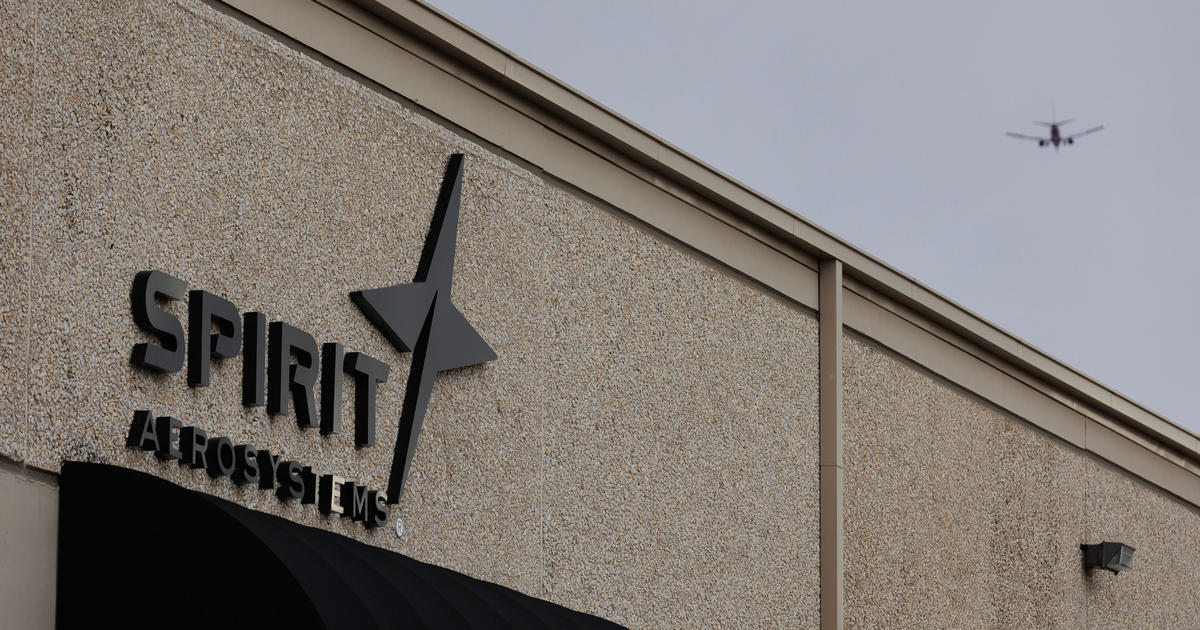[ad_1]
Boeing announced plans to acquire Spirit AeroSystems for $4.7 billion in an all-stock transaction. Spirit is part of the aerospace giant’s supply chain.
Boeing, located in Arlington, Virginia, announced the purchase in a statement early Monday. Spirit is headquartered in Wichita, Kansas.
At about the same time, European aerospace giant Airbus said it had entered into an agreement to buy “major activities related to Airbus” from Spirit.
Under intentions laid out in the announcements, Boeing would take over most of Spirit’s operations.
Spirit builds fuselages and other significant parts for both Boeing and Airbus.
The Airbus agreement is set to commence when Boeing’s acquisition of Spirit is completed, the two U.S. companies said.
The Boeing acquisition’s equity value of $4.7 billion is $37.25 per share, while the total value of the deal is around $8.3 billion, which includes Spirit’s last reported net debt, Boeing said.
Airbus said it would “be compensated by payment of $559 million” from Spirit “for a nominal consideration of $1.00, subject to adjustments including based on the final transaction perimeter.”
Boeing on why it’s making the move
Boeing President and CEO Dave Calhoun said in the company’s statement that, “We believe this deal is in the best interest of the flying public, our airline customers, the employees of Spirit and Boeing, our shareholders and the country more broadly.”
Boeing previously owned Spirit, and Boeing said bringing the supplier back into the Boeing fold would improve plane quality and safety, which have come under increasing scrutiny by regulators, Congress and airlines.
“By reintegrating Spirit, we can fully align our commercial production systems, including our Safety and Quality Management Systems, and our workforce to the same priorities, incentives and outcomes – centered on safety and quality,” Calhoun said.
The purchase of Spirit would reverse a longtime Boeing strategy of outsourcing key work on its passenger planes. That approach has been criticized as problems at Spirit disrupted production and delivery of popular Boeing jetliners, including 737s and 787s.
Concerns about safety came to a head after the Jan. 5 blowout of a panel on an Alaska 737 Max 9 at 16,000 feet over Oregon. The Federal Aviation Administration soon after announced increased oversight of Boeing and Spirit.
Plea deal for Boeing?
Separately, the Justice Department on Sunday presented Boeing with a plea deal after it accused Boeing of violating the terms of a 2021 deferred prosecution agreement that was put in place following two 737 Max crashes in 2018 and 2019.
The department told Boeing it could plead guilty or go to trial, people familiar with the talks confirmed to CBS News. The agreement would have the company plead guilty to the conspiracy charge it originally faced in 2021. In exchange, Boeing would pay a fine and enter a three-year probationary period, the people said.
The DOJ outlined the deal in a presentation to family members of the 737 Max crash victims earlier Sunday before presenting it to Boeing.
News of the plea deal was first reported by Reuters.
If Boeing agrees, a judge would have to sign off on the accord.
But Paul Cassell, an attorney who represents 15 of the victims’ families, told CBS News the proposal was “another sweetheart plea deal” and said the families will “strenuously object” to the deal.
Titanium parts a concern
On another safety front, the FAA said in June it is investigating how titanium parts that were sold with falsified quality documentation were used in the construction of Boeing and Airbus passenger jets in recent years.
Boeing and Airbus said the planes with the falsely documented parts are safe to fly, but Boeing said it would remove affected parts from planes that had not yet shipped to airline customers.


